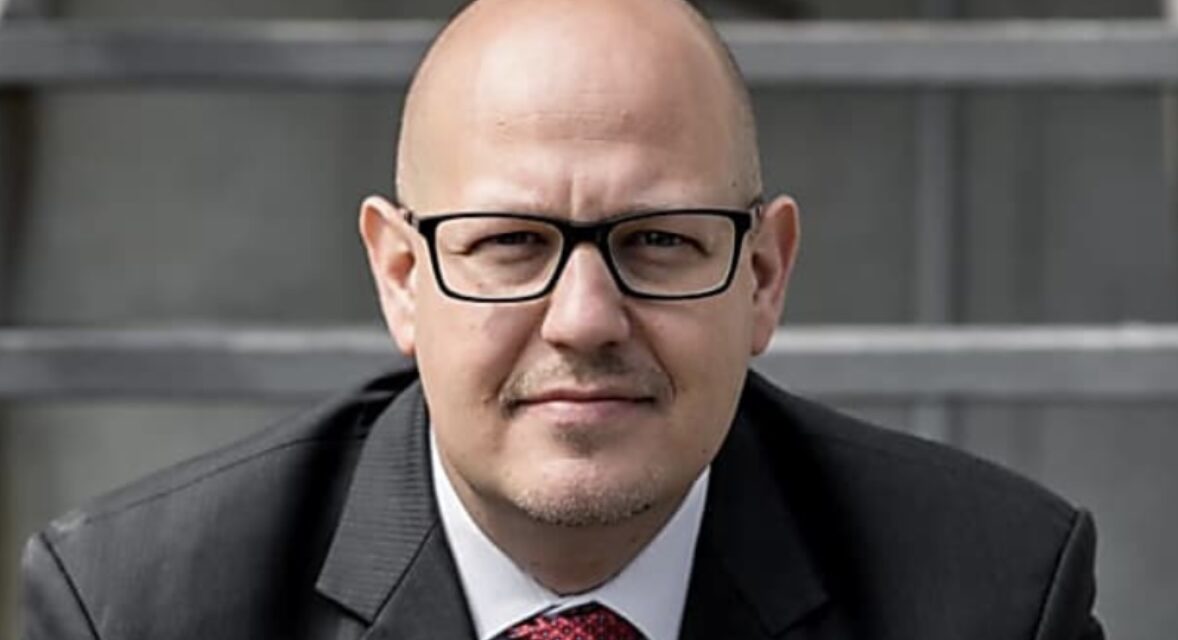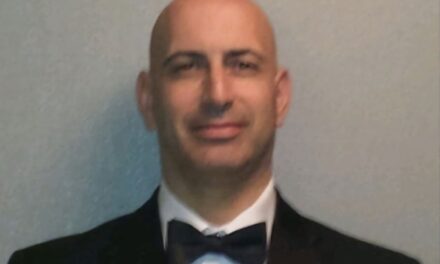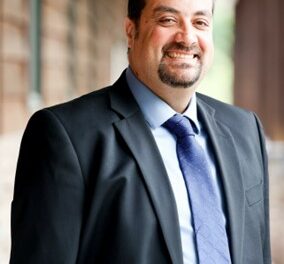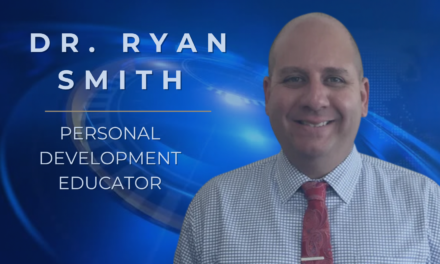Matthew Brodacki, based in Fairfield County, Connecticut, is a renowned cybersecurity leader and law enforcement professional whose work has shaped the future of cybercrime investigations and victim advocacy. As Captain of the Regional Technical Investigations Unit (TIU) for Southwestern Connecticut, he oversees a team handling over 500 cyber cases annually. His background includes dual master’s degrees in Public Administration and Digital Forensics and extensive collaboration with federal agencies, including the United States Secret Service. Beyond his professional achievements, Matthew is an active advocate for child exploitation victims, contributing to legislative advancements and serving as a board member for the Rowan Center. His recent testimony before the Connecticut House and his presentation at the National Cyber Crime Conference highlight his role as a thought leader in technology, law enforcement, and public service.
How has your approach to leadership evolved over the years as cybersecurity threats have grown more sophisticated?
Leadership in cybersecurity requires constant adaptation. Early in my career, the focus was on responding to incidents as they occurred. Over time, I realized that being reactive wasn’t enough; I needed to lead in a way that prepared my team to anticipate and prevent threats before they materialized. This shift meant fostering a culture of innovation, where continuous learning and open communication became foundational.
Today, I encourage my team to challenge the status quo and stay curious. Cyber threats are dynamic, and our strategies must evolve just as quickly. Whether it’s integrating AI into investigations or developing new protocols for digital evidence, leadership in this field is about empowering others to think critically and embrace change.
What role does advocacy play in your professional life, and why is it so important to you?
Advocacy is a cornerstone of my career because technology and law enforcement don’t operate in isolation—they’re deeply intertwined with human lives and societal values. My work with the Rowan Center has shown me the real-life consequences of cybercrime, particularly for victims of child exploitation. These experiences drive my efforts to influence legislation and promote policies that prioritize safety and justice.
Advocacy isn’t just about lobbying for change; it’s about collaboration. When I testified before the Connecticut House on House Bill 5421, I wasn’t just representing law enforcement—I was amplifying the voices of child advocacy centers and survivors. Seeing how these efforts can lead to meaningful change is incredibly rewarding and reinforces why advocacy is so crucial in this line of work.
What challenges do you encounter when bridging the gap between emerging technology and public policy?
One of the biggest challenges is that technology often moves faster than legislation. While advancements like AI and blockchain can revolutionize how we combat cybercrime, they also introduce complexities that lawmakers may not fully understand. My role often involves translating these technical concepts into actionable insights for policymakers.
Another challenge is balancing innovation with ethics. For example, tools like facial recognition or predictive analytics are powerful, but they come with significant privacy concerns. Bridging this gap requires finding a middle ground that leverages technology responsibly while protecting individual rights. It’s a delicate balance, but it’s one we must prioritize to ensure public trust.
What was the most impactful moment of your career, and how did it shape your perspective?
One moment that stands out is my work during the Sandy Hook tragedy. Serving as a Family Liaison Officer during such a profoundly emotional time reminded me of the human element in law enforcement. It wasn’t about technology or procedures—it was about being present, offering support, and navigating one of the most difficult experiences imaginable.
That moment shaped my perspective by underscoring the importance of empathy in everything we do. Whether I’m leading a cyber investigation or advocating for legislative change, I carry that lesson with me. It’s a reminder that, at the core of every case or initiative, there are real people whose lives are impacted.
What excites you most about the future of cybersecurity?
The future of cybersecurity is incredibly exciting because we’re standing at the intersection of innovation and opportunity. AI and machine learning are already transforming how we detect and respond to threats, and I believe we’re only scratching the surface of their potential. Quantum computing is another frontier that will revolutionize encryption and security protocols.
What excites me most, though, is the potential to create more proactive systems. Instead of reacting to breaches, we’re moving toward predictive models that can stop attacks before they happen. This shift could redefine how we think about cybersecurity and public safety. It’s an exhilarating time to be in this field, and I’m motivated by the possibilities.
How do you ensure that your team stays ahead of the curve in such a rapidly changing field?
I emphasize the importance of continuous education and collaboration. Technology changes so quickly that standing still means falling behind. I encourage my team to participate in industry conferences, pursue certifications, and share insights from real-world cases.
Internally, we’ve developed a culture of knowledge sharing. Regular meetings focus on emerging threats, new tools, and lessons learned from recent investigations. This collaborative environment ensures that everyone, regardless of their role, is equipped with the latest information and techniques. Staying ahead isn’t just about individual effort—it’s a team-wide commitment.
What advice would you give to someone just starting their career in cybersecurity or law enforcement?
Stay curious and adaptable. This field is constantly evolving, and the ability to learn and grow will set you apart. Focus on building a strong foundation of technical skills, but don’t overlook the importance of communication and empathy. The best cybersecurity professionals and law enforcement officers are those who can balance technical expertise with a deep understanding of human behavior.
I’d also say, don’t be afraid to fail. Some of the most valuable lessons in my career came from challenges that didn’t go as planned. Use every experience, good or bad, as an opportunity to learn and improve.
What legacy do you hope to leave behind?
I want my legacy to be one of impact and integrity. Whether through the systems and protocols I’ve helped develop, the legislative changes I’ve influenced, or the people I’ve worked with, I hope to leave the field better than I found it.
Ultimately, my goal is to create a framework that others can build upon—a foundation of innovation, ethics, and resilience that ensures the safety and well-being of future generations. If my work can inspire others to push boundaries, challenge assumptions, and prioritize community, I’ll consider that a legacy worth leaving.
Matthew Brodacki’s insights reflect a career dedicated to innovation, advocacy, and service. As he continues to lead in both cybersecurity and public policy, his work serves as a powerful reminder of the importance of balancing technology with humanity.




